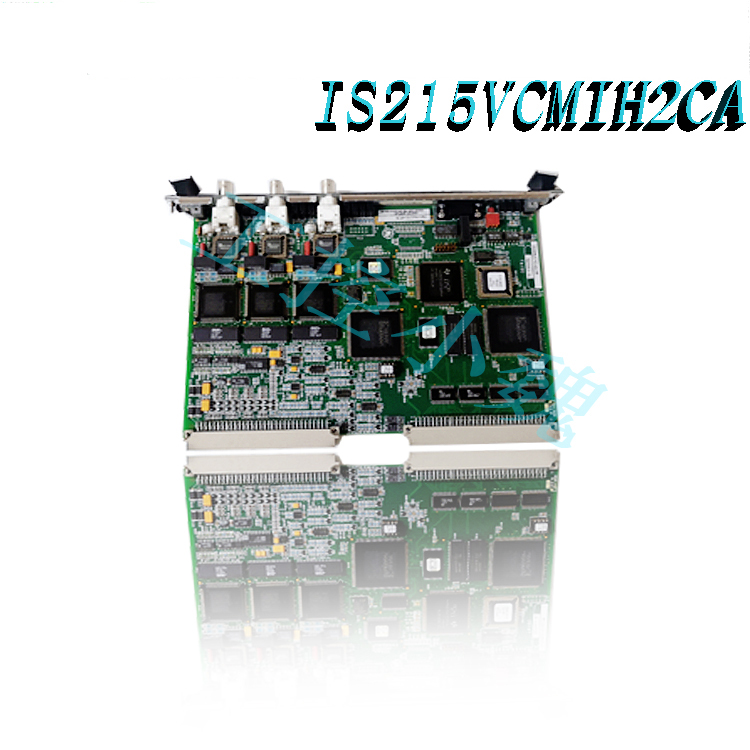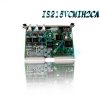Description
Many products are not yet on the shelves please contact us for more products
If there is any inconsistency between the product model and the picture on display, the model shall prevail. Contact us for the specific product picture, and we will arrange to take photos in the warehouse for confirmation
We have 16 shared warehouses around the world, so please understand that it can sometimes take several hours to accurately return to you. Of course, we will respond to your concerns as soon as possible
VME-PMC – caddy is used for VME board expansion of 2 PMC modules. VMEbus system can easily add up to 2 PMC modules to VMEbus system. All PMC I/O signals are routed to VMEbus connector P2 according to IEEE P1386/Draft 2.0 specification, Suitable for two single width PMC modules or one double width module, optional to provide alternative P2 pin allocation (VME-PMC-CADDY-32P2), high bandwidth connection between VME and PCI, powerful VME PCI bridge UNIVERSE CA91C142, level 4 VME arbitrator,(https://www.weikunfadacai1.com/)

-1.jpg)
In addition to using PMC address/data and control signal transmission connectors, each slot of VME-PMC-CADDY is also equipped with an I/O connector for routing the I/O signals of the PMC module to VMEbus connector P2. Provide two different P2 pin assignments: in the default configuration, Each P2 pin is only connected to one I/O pin of the PMC module (according to the PMC update of FORCETM, in option “-32P”) Pin allocation is based on IEEE P1386/Draft 2.0, Tables 6-3. This pin arrangement allows for the connection of two PMC modules through P2, as some PMC I/O signals are placed side by side on P2. The front panel of VME-PMC-CADDY is equipped with two openings for the PMC module front panel. Includes a blind cover for unoccupied slots. Easy scalability of VMEbus system • Add up to 2 PMC boards to your system • Connect to site using P2-IO • Insert 2 single or 1 dual size PMC units • Use P2 pin allocation option and high bandwidth connection between VME and PCI • Powerful VME-PCI bridging UNIVERSE CA91C142 • Level 4
-1.jpg)
VME arbiter and address space below A32/D32 • VME64 expansion connector • Reliable design for master and slave functions – easy to operate and cost-effective, effective • Low power design for easy cooling • Approved in many industrial applications • Standard interfaces and appearance factors according to IEEE P1386 and IEEE 1014 • Available software library VME-PCI link VME bus unit PMC-CADDY is VME64- a substrate capable of carrying up to two PMCs at normal scale A module of inches or double the size of a module. For VMEbus connections, the VME-PCI bridge UNIVERSE CA91C142Tundra uses an internal clock rate of 33MHz. The design of the VMEbus interface CA91C142 allows the board to operate as a slave or as a master on VMEbus. If the board of directors operates as a host, it supports Level 4 arbitrator PMC-CADDY to use data widths up to 32 bits and address signals on the 32 VME bus. This VME bus interrupt can be applied to any seven interrupt request lines. The board of directors is connected to the VME bus VG connector through two 160 pins, which complies with IEC603 VME64 extension display activity. VME bus interrupt requests are displayed as yellow LEDs through the red LED on the front panel and VME bus access to the board. The PMC plugin unit is designed with two PMC plugin units according to IEEE standard draft P1386/draft 2.0 (excluding standard I/O pins for routing). Therefore, all PMC modules on the market can be inserted to process 5V signals on the PCI bus. In addition to connectors for PMC address/data and control signals, the plug-in device of PMC-CADDY has I/O connectors for applying the I/O signals of PMC modules to VMEbus connector P2. Two different P2 pin designations are available: each P2 pin is configured in the standard to only connect to one I/O pin of the PMC module (updated FORCETM based on PMC, Table 1, authored by Wayne Fischer, Strategic Project Director, CMC/PMC Working Group Chair, 22.10.96).
Model recommendation:



-1-100x100.jpg)
-1-100x100.jpg)

Reviews
There are no reviews yet.